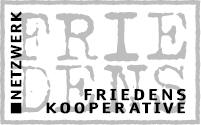Nur ein atomwaffenfreies Europa ist ein sicheres Europa! Unterzeichne hier unseren Appell:
Redebeitrag für die Pflanzung eines Muku-Baums in der Bonner Rheinaue am Hiroshima-Gedenktag am 6. August 2020
- Es gilt das gesprochene Wort -
Dear friends
I am honoured to have been invited here today to pay homage to the victims of the cataclysmic events that took place 75 years ago, to those who perished and to the survivors, the Hibakusha, who throughout the past 75 years have shown courage and moral leadership in reminding us all about the human cost of nuclear war and who have fought tirelessly to ensure that nuclear weapons are never used again.
It is the Hibakusha, these heroes, that I want to pay tribute to today. Despite suffering from the effects of radiation sickness, loss of family and friends, and dis-crimination, they have been shining examples of turning their personal tragedies into a struggle to promote peace and to a world free of nuclear weapons. Their selfless acts are the epitome of volunteerism, giving their time, energy and effort for the benefit of others, for future generations to live in peace, safety and security.
Before I end my brief remarks, I want to tell you about Sadako Sasaki, a 13 year old girl who lived near the epicentre of the Hiroshima bombing, she developed leukaemia from radiation poisoning in 1955 and, while in hospital, her closest friend reminded her of the Japanese legend that if she folded a thousand paper cranes, the gods might grant her wish to be well again. With hope and determina-tion, Sadako began folding, and so, the paper crane became a symbol of peace alongside the white dove. And today, I end by hanging a single, white paper crane on the tree we plant.
Thank you.
Olivier Adam ist Executive Coordinator der United Nations Volunteers (UNV) in Bonn.
